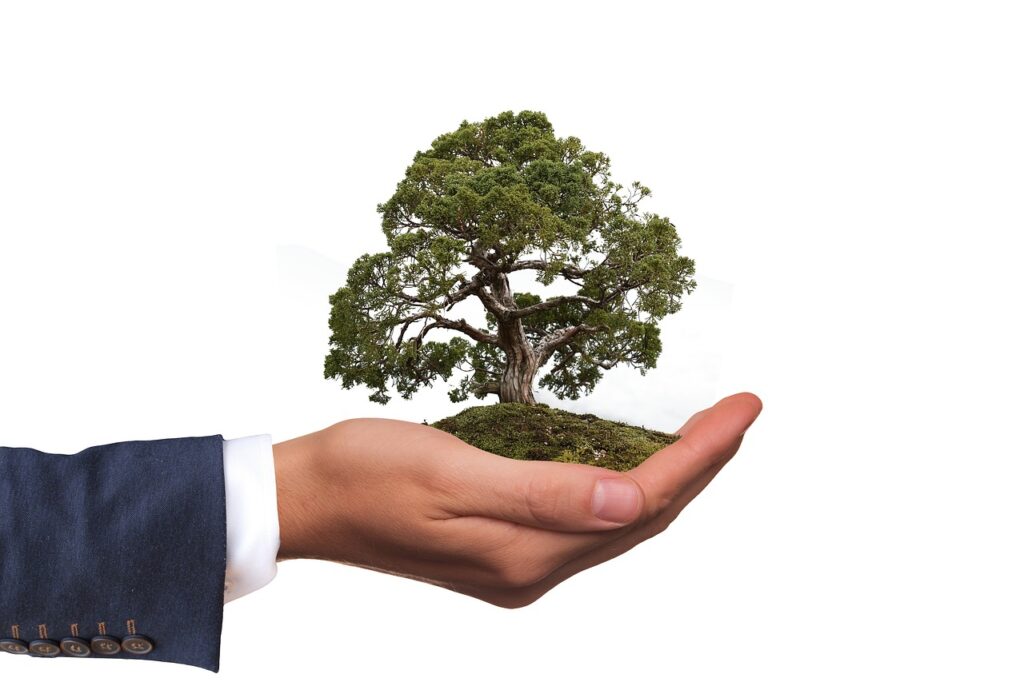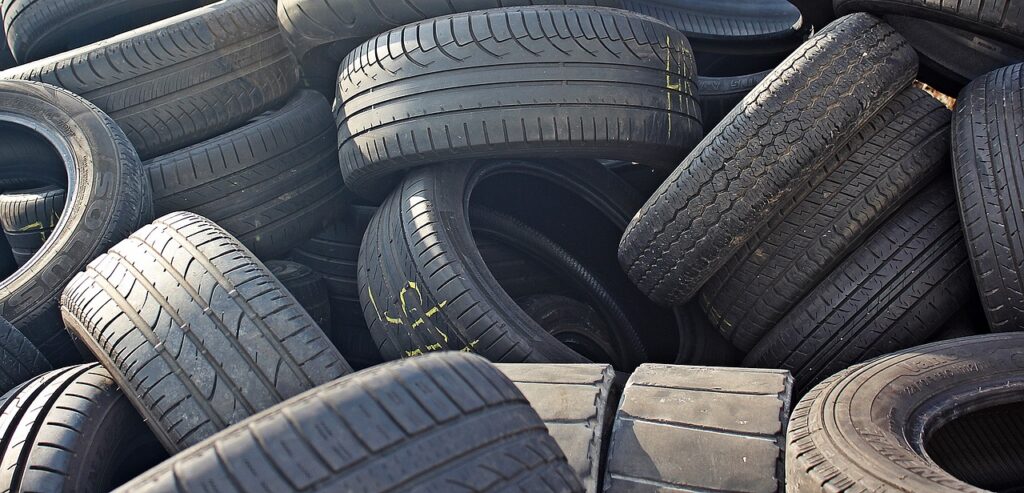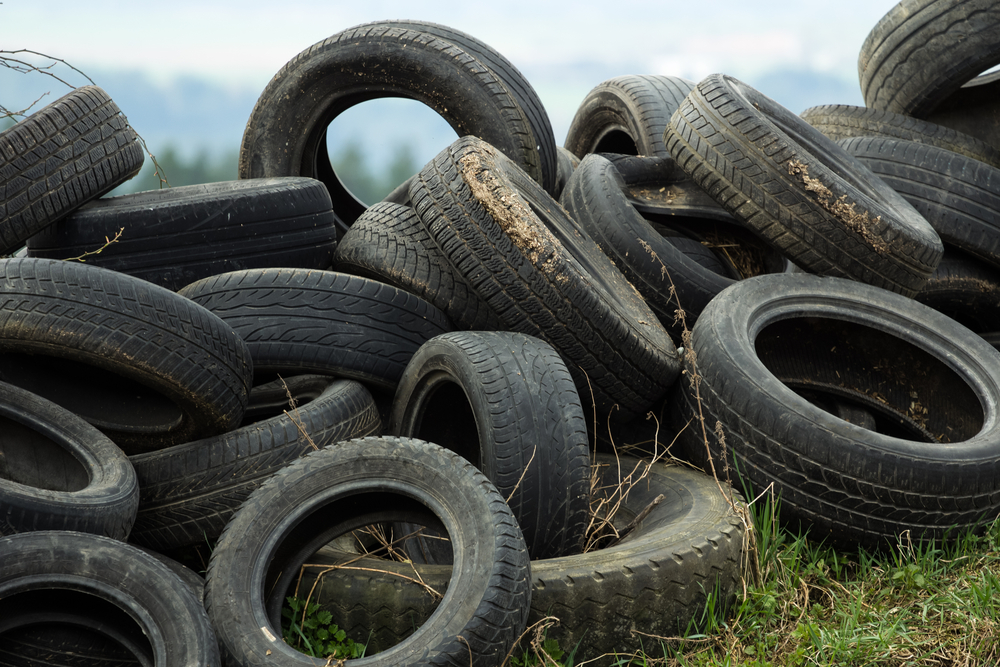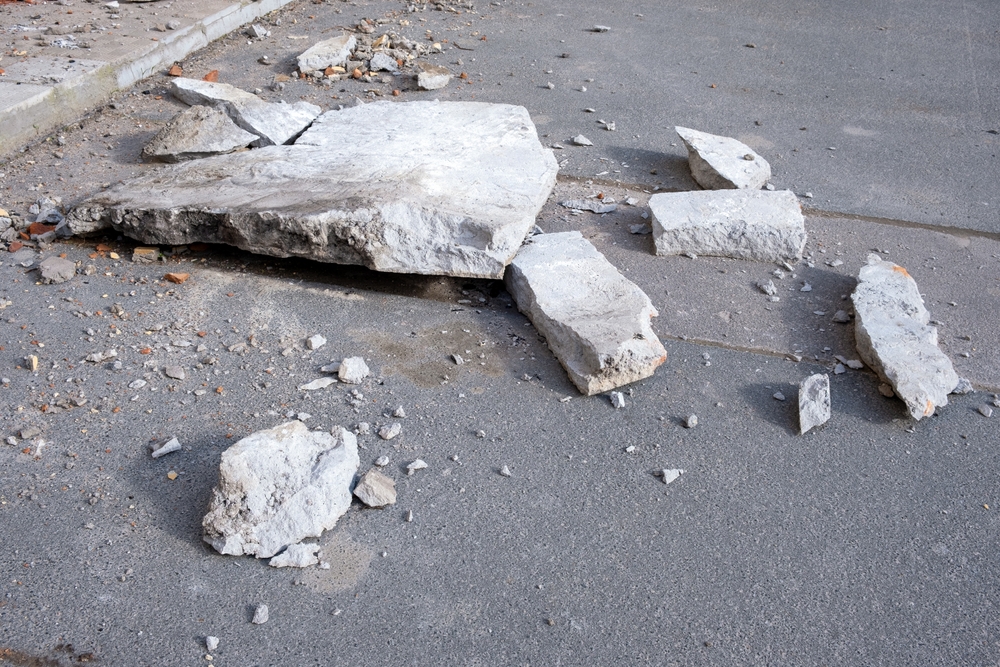February 26, 2024 - Benjamin Ehinger
What Do Tire Shops Do With Old Tires: Recycling and Disposal Explained
CALL NOW 844-762-8449
When you take your vehicle in for tire replacement, you might wonder about the fate of your old tires. Tire shops play a crucial role in the lifecycle of a tire, and their practices have a significant impact on the environment. The disposal methods employed by these shops are regulated to prevent old tires from becoming a public health or ecological hazard. Improper tire disposal can lead to issues such as water accumulation, which creates breeding grounds for mosquitoes, or the risk of fires, which are challenging to extinguish and negatively affect the environment.
Tire shops often collaborate with recycling facilities to manage the old tires they collect. These facilities have the means to repurpose or recycle the tires into products such as construction materials, playground surfaces, or tire-derived fuels. Tires are not biodegradable, which elevates the importance of recycling, repurposing, or proper disposal. Some tire shops even offer credit for slightly used tires, which encourages consumers to participate in tire recycling programs. Knowledge of these processes is vital for consumers who are environmentally conscious and looking to make responsible choices when it comes to tire disposal.
 When you retire your vehicle’s tires, their journey doesn’t end at the tire shop. How these tires are processed affects both waste reduction and pollution levels.
When you retire your vehicle’s tires, their journey doesn’t end at the tire shop. How these tires are processed affects both waste reduction and pollution levels.
 When you replace your tires, it’s important to consider the environmental and practical implications of disposing of the old ones. This section answers common queries regarding tire disposal and recycling.
When you replace your tires, it’s important to consider the environmental and practical implications of disposing of the old ones. This section answers common queries regarding tire disposal and recycling.
Key Takeaways
- Tire shops ensure old tires are disposed of properly to minimize environmental impact.
- Recycling facilities repurpose old tires into new, useful products, diverting them from landfills.
- Responsible tire disposal by tire shops is crucial in preventing health and environmental hazards.
Tire Recycling Process
The tire recycling process transforms your old tires into reusable materials through a series of specialized steps. These steps ensure that the tires are efficiently and ecologically repurposed.Collection and Transportation
Your used tires are first collected by a network of tire recycling partners, who then transport them to a recycling facility. This phase is vital to ensure that old tires do not end up in landfills or in the environment, leading to ecological damage.Initial Sorting
Upon arrival at the recycling plant, tires undergo sorting. Staff members inspect the condition of each tire and sort them accordingly. Tires suitable for retreading are set aside, while others move on to the shredding process.Shredding
The shredding process begins with the breakdown of tires into smaller pieces. These pieces are easier to process and can be used for a variety of applications ranging from construction materials to playground surfaces. Proper shredding is essential for maximizing the potential of old tires for further recycling stages.Repurposing Old Tires
When your old tires are replaced, tire shops don’t just throw them away. Instead, they have developed resourceful methods of repurposing them, primarily focusing on energy recovery and material recovery processes.Energy Recovery
Tires can be an excellent source of energy. In a process known as tire-derived fuel (TDF), your old tires are converted to fuel due to their high heat content, which is higher than that of coal. This recovered energy can be used in manufacturing facilities such as cement kilns, paper mills, and electric utilities, significantly reducing the need for fossil fuels.Material Recovery
Your old tires also have a new life ahead of them through material recovery. The rubber from tires can be ground down into crumb rubber, which forms the basis for new products. This rubber mulch is commonly used for playground surfaces and athletic tracks due to its shock-absorbent properties. In addition, recovered tire materials can be used in construction for roadbeds, or even as a base for new, environmentally friendly products like rubberized asphalt. By ensuring thorough and responsible disposal through these methods, tire shops contribute to a more sustainable and eco-friendly industry.Environmental Impact
 When you retire your vehicle’s tires, their journey doesn’t end at the tire shop. How these tires are processed affects both waste reduction and pollution levels.
When you retire your vehicle’s tires, their journey doesn’t end at the tire shop. How these tires are processed affects both waste reduction and pollution levels.
Reduction of Waste
Old tires are increasingly being diverted from landfills and converted into new material. Rubber mulch production is one such example, reusing tires for landscaping purposes. Your understanding of tire recycling’s benefits to the environment can be deepened through studies like the 2019 Scrap Tire Management Report, highlighting the large percentage of scrap tires repurposed into products like rubber modified asphalt and automotive products.Pollution Prevention
Preventing pollution is another critical aspect of managing old tires. When tires wear down, they lose about 30% of their tread, contributing to microplastic pollution. Tire shops play a role in cutting down this pollution source by choosing eco-friendly disposal methods. For instance, tire pyrolysis is a process that can minimize environmental impact by breaking down old tires into usable resources rather than letting them disintegrate into harmful particles as outlined in the World Economic Forum’s report.Frequently Asked Questions
 When you replace your tires, it’s important to consider the environmental and practical implications of disposing of the old ones. This section answers common queries regarding tire disposal and recycling.
When you replace your tires, it’s important to consider the environmental and practical implications of disposing of the old ones. This section answers common queries regarding tire disposal and recycling.
Are old tires recycled or reused?
Old tires are often recycled and can be repurposed into various products such as rubber mulch or new tires. Some tire shops collaborate with recycling programs to ensure old tires find a new life in eco-friendly applications.How can I dispose of old tires responsibly?
You can dispose of old tires responsibly by taking them to a tire retailer or a local recycling facility that accepts tires. Ensure that you choose a lawful and environmentally conscious disposal option.Is there a charge for tire disposal at tire shops?
Many tire shops charge a disposal fee to cover the costs of properly recycling or disposing of old tires. The fee can vary depending on the location and the tire shop’s policies.What are the environmental impacts of improper tire disposal?
Improper disposal of tires can lead to serious environmental damage, including fire hazards and breeding grounds for mosquitos which may spread diseases. Tires in landfills can also leach toxic chemicals into the soil and water.Can I keep my old tires when I get new ones installed?
Yes, you can keep your old tires after getting new ones installed, but you will be responsible for their proper disposal or reuse.Where can consumers take old tires for free disposal?
Some local municipalities and community recycling programs offer free tire disposal events or services. It’s worth checking with your local waste management authority for options available in your area.RECENT BLOGS
Our Reviews
Glenda Lanier Prowell
1721758635
I have ordered an 11 yard dumpster to be delivered to my house.Lonier was extremely helpful and answered all my questions. The rate was very reasonable.
Cedric Smikle
1721660395
Amber was extremely professional and courteous. She answered all of my questions and even some that I didn’t know I needed to ask.
Cait Kaider
1721243051
I highly recommend Waste Removal USA for their responsiveness and how the staff work hard to provide exceptional customer service. They have done well by us and our clients. Thank you!
Easom Family
1721223306
Louiner Pierre-Louis Is awesome! Did a great job. Will definitely be using this same company for all my dumpster needs because of his awesome customer service! Thank you!!!
tabitha Vazquez
1720539988
Wonderful and fast customer service!
LATEST BLOGS






